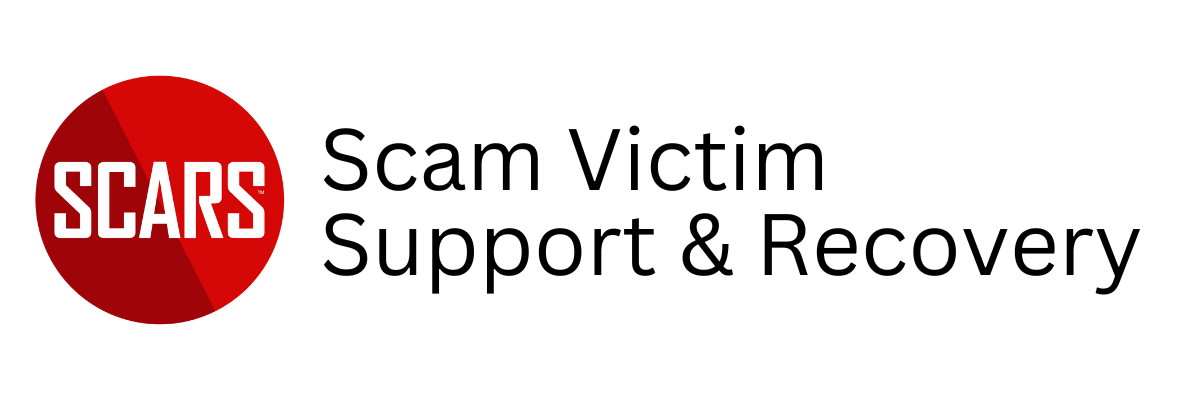An Insight Into Coping with Emotional Trauma After Becoming A Scam Victim
Helping Scam Victims Better Understand Emotional Trauma Coping and Avoidance
A SCARS Institute Insight
Primary Category: Scam Victim Recovery Psychology
Authors:
• Vianey Gonzalez B.Sc(Psych) – Licensed Psychologist, Specialty in Crime Victim Trauma Therapy, Neuropsychologist, Certified Deception Professional, Psychology Advisory Panel & Director of the Society of Citizens Against Relationship Scams Inc.
• Tim McGuinness, Ph.D., DFin, MCPO, MAnth – Anthropologist, Scientist, Polymath, Director of the Society of Citizens Against Relationship Scams Inc.
About This Article
Note: This article is intended for informational purposes and does not replace professional medical advice. If you are experiencing distress, please consult a qualified mental health professional.

Living in the Cage: Coping with Emotional Trauma After Being Scammed
When scam victims suffer from trauma, the inability to tolerate uncomfortable emotions can feel like living in a cage.
This emotional confinement caused by psychological trauma often leads a scam victim to avoid thoughts, people, and experiences that may stir up distressing feelings, causing their world to shrink and their quality of life to deteriorate. The more they retreat from these triggers, the more limited and constrained their life becomes, making recovery seem like an insurmountable challenge.
Understanding the Emotional Cage of Trauma
The emotional aftermath of being scammed is devastating. Victims often experience a wide range of emotions, including shame, guilt, anger, and fear. These feelings are natural responses to the betrayal and violation of trust that relationship scams entail. However, the intensity of these emotions can make them difficult to tolerate. As a result, many victims find themselves withdrawing from anything that might remind them of their ordeal.
This withdrawal can manifest in various ways. Some individuals may avoid talking about their experience, while others might distance themselves from social situations or activities they once enjoyed, this includes avoiding support services and professional therapy. They might also steer clear of anything related to finances or online interactions, fearing a repeat of the traumatic event. While these avoidance strategies can provide temporary relief, they ultimately reinforce the emotional cage, limiting the victim’s ability to recover and lead a fulfilling life.
The Impact of Avoidance
Avoidance may seem like a protective measure but it often makes the trauma worse. When victims consistently avoid triggers, they miss opportunities to confront and process their emotions. This leads to increased anxiety and a heightened sense of vulnerability or it can sustain residual fear or translate into anger and hate. Over time, the avoidance behavior becomes ingrained, making it even more challenging to break free from the cycle of emotional denial and isolation.
Additionally, avoidance can have far-reaching consequences. It can strain and limit personal and professional relationships, affect job performance, and diminish overall mental health. The constant effort to dodge triggers can be exhausting, leaving scam victims feeling drained and disconnected from their lives. The more they avoid, the smaller their world becomes, trapping them in an ever-tightening emotional cage.
The Experience and Impact of Avoidance on a Traumatized Scam Victim
Avoidance is a subtle yet pervasive response to trauma for many scam victims. It often begins as a natural protective or defense mechanism, helping individuals distance themselves from reminders of their distressing experience. However, over time, avoidance can become an entrenched habit, shaping daily behaviors and emotional responses. For scam victims, avoidance often feels like a constant state of vigilance, where they are always on guard against anything that might trigger painful memories or emotions.
Emotionally, avoidance manifests as a sense of dread or anxiety at the thought of confronting the trauma or things associated with the crime. A scam victim can feel an overwhelming need to escape or shut down when faced with reminders of the scam. This can lead to a pervasive sense of unease, where even mundane activities or interactions are tinged with anxiety and fear. The constant effort to suppress or evade distressing thoughts can be exhausting, leaving victims feeling drained and emotionally numb.
The Appearance of Emotional Avoidance
Avoidance in a scam victim can take many forms, affecting various aspects of their lives.
Here are some common manifestations:
Avoiding Reporting the Crime: Typically, scam victims experience significant anxiety when facing the requirement to report the crime. Partly this is based on the fear of judgment but more than that it is simply the desire to avoid confronting the reality of their situation.
Avoiding Financial Matters: Scam victims might develop an aversion to anything related to money. They may avoid checking bank statements, opening bills, or discussing finances with family members. This can lead to financial disorganization and further stress, as unresolved financial issues accumulate.
Social Withdrawal: Victims often isolate themselves from friends and family, support networks, and professional assistance to avoid conversations about their experience or feelings. They often decline social invitations, stop attending gatherings, or even avoid phone calls. This isolation can deepen feelings of loneliness and depression.
Online Avoidance: Given that many scams occur online, victims often develop a fear or phobia of using the internet. They might avoid social media, online shopping, or even email. This can hinder their ability to stay connected with others and manage day-to-day tasks that require internet use.
Physical Avoidance: Some victims may avoid places that remind them of the scam. For instance, if the scam involved a particular location, such as where they sent money from, they might take different routes to avoid passing by that place. This can limit their mobility and daily activities.
Avoidance of Conversations: Scam victims often steer clear of discussions that could bring up the topic of scams, fraud, or financial security. They might change the subject abruptly or leave the room when such topics arise. This can strain relationships and make it difficult to seek the support they need.
Neglecting Responsibilities: The emotional toll of avoidance can lead victims to neglect personal and professional responsibilities. They might miss deadlines, avoid important meetings, or fail to take care of their health. This can create additional stress and complications in their lives.
Hypervigilance: Some victims develop a heightened state of alertness, constantly scanning their environment for potential threats. This can lead to chronic anxiety and difficulty relaxing or sleeping.
Steps to Address and Tolerate Difficult Emotions
Gradual Exposure: One effective approach to breaking free from the emotional cage is through gradual exposure to feared situations or thoughts in a controlled and supportive environment. This technique, often used in cognitive-behavioral therapy (CBT), involves slowly confronting the triggers that cause distress. SCARS employs the approach of learning and education to help accomplish this. By doing so, victims can build increased knowledge and comfort, psychological resilience, and reduce the power of these triggers over time. For instance, a person might start by reading about financial scams and recovery in a safe setting before gradually moving on to more challenging tasks, such as checking their bank statements or discussing their experience with a trusted friend.
Mindfulness and Grounding Techniques: Mindfulness practices, such as meditation and deep-breathing exercises, can help victims stay present and connected to their surroundings. These techniques encourage individuals to observe their thoughts and feelings without judgment, allowing them to process emotions without becoming overwhelmed. Grounding techniques, such as focusing on physical sensations or engaging in sensory activities, can also be effective in managing intense emotions.
Seeking Support: Talking about the experience with friends, family, or a mental health professional can provide a safe space to process emotions and develop coping strategies. Support providers, both in-person and online, also offer a sense of community and understanding. Connecting with others who have faced similar challenges can reduce feelings of isolation and provide valuable insights into recovery. To access SCARS Institute support services visit support.AgainstScams.org or enroll in our free Scam Survivor’s School at www.SCARSeducation.org
Self-Care Activities: Engaging in self-care activities, such as exercise, hobbies, or relaxation techniques, enhances emotional regulation and overall well-being. Physical activity, such as walking, in particular, has been shown to reduce symptoms of anxiety and depression. Pursuing hobbies and interests can also provide a sense of accomplishment and joy, counteracting the negative emotions associated with the trauma.
Setting Small Goals: Victims can benefit from setting small, achievable goals that gradually expand their comfort zones. For example, they might start by checking their email once a day, then gradually increase their online activity as they feel more comfortable.
Professional Help: For some victims, professional help may be necessary. Therapies such as CBT, Eye Movement Desensitization and Reprocessing (EMDR), and trauma-focused therapy can be highly effective in addressing the emotional impact of being scammed. A trained therapist can help individuals develop personalized coping strategies and work through their emotions in a structured and supportive environment. To find a professional trauma therapist visit counseling.AgainstScams.org
Building Resilience: Developing resilience is a crucial aspect of recovery. This involves cultivating a positive outlook, setting realistic goals, and maintaining a sense of purpose. Resilience-building activities, such as volunteering, learning new skills, or engaging in spiritual practices, can help victims regain a sense of control and empowerment.
The Path to Healing
Healing from the trauma of being scammed is a gradual process that requires patience and persistence. By taking proactive steps to address and tolerate difficult emotions, victims can begin to expand their comfort zones and reclaim their lives. It’s important to remember that recovery is not linear or quick, and setbacks are a natural part of the journey. However, with the right support and strategies, it is possible to break free from the emotional cage and move toward a brighter future.
Summary
The experience of being scammed can leave victims feeling trapped in an emotional cage, where avoidance of uncomfortable emotions and triggers limits their ability to live fully.
Avoidance is a common and understandable response to the trauma of being scammed, but it can lead to a restrictive and isolating existence. Recognizing the signs of avoidance and taking proactive steps to address them can help victims break free from the emotional cage it creates. Through gradual exposure, mindfulness practices, support networks, therapeutic interventions, and resilience-building activities, victims can learn to tolerate difficult emotions and reclaim their lives. While the journey to recovery is not easy, it is possible with the right strategies and support.
-/ 30 /-
What do you think about this?
Please share your thoughts in a comment below!
Statement About Victim Blaming
SCARS Institute articles examine different aspects of the scam victim experience, as well as those who may have been secondary victims. This work focuses on understanding victimization through the science of victimology, including common psychological and behavioral responses. The purpose is to help victims and survivors understand why these crimes occurred, reduce shame and self-blame, strengthen recovery programs and victim opportunities, and lower the risk of future victimization.
At times, these discussions may sound uncomfortable, overwhelming, or may be mistaken for blame. They are not. Scam victims are never blamed. Our goal is to explain the mechanisms of deception and the human responses that scammers exploit, and the processes that occur after the scam ends, so victims can better understand what happened to them and why it felt convincing at the time, and what the path looks like going forward.
Articles that address the psychology, neurology, physiology, and other characteristics of scams and the victim experience recognize that all people share cognitive and emotional traits that can be manipulated under the right conditions. These characteristics are not flaws. They are normal human functions that criminals deliberately exploit. Victims typically have little awareness of these mechanisms while a scam is unfolding and a very limited ability to control them. Awareness often comes only after the harm has occurred.
By explaining these processes, these articles help victims make sense of their experiences, understand common post-scam reactions, and identify ways to protect themselves moving forward. This knowledge supports recovery by replacing confusion and self-blame with clarity, context, and self-compassion.
Additional educational material on these topics is available at ScamPsychology.org – ScamsNOW.com and other SCARS Institute websites.
-/ 30 /-
What do you think about this?
Please share your thoughts in a comment below!
SCARS LINKS: AgainstScams.org RomanceScamsNOW.com ContraEstafas.org ScammerPhotos.com Anyscam.com ScamsNOW.com
reporting.AgainstScams.org support.AgainstScams.org membership.AgainstScams.org donate.AgainstScams.org shop.AgainstScams.org
youtube.AgainstScams.org linkedin.AgainstScams.org facebook.AgainstScams.org
3 Comments
Leave A Comment
Important Information for New Scam Victims
- Please visit www.ScamVictimsSupport.org – a SCARS Website for New Scam Victims & Sextortion Victims.
- SCARS Institute now offers its free, safe, and private Scam Survivor’s Support Community at www.SCARScommunity.org – this is not on a social media platform, it is our own safe & secure platform created by the SCARS Institute especially for scam victims & survivors.
- SCARS Institute now offers a free recovery learning program at www.SCARSeducation.org.
- Please visit www.ScamPsychology.org – to more fully understand the psychological concepts involved in scams and scam victim recovery.
If you are looking for local trauma counselors, please visit counseling.AgainstScams.org
If you need to speak with someone now, you can dial 988 or find phone numbers for crisis hotlines all around the world here: www.opencounseling.com/suicide-hotlines
Statement About Victim Blaming
Some of our articles discuss various aspects of victims. This is both about better understanding victims (the science of victimology) and their behaviors and psychology. This helps us to educate victims/survivors about why these crimes happened and not to blame themselves, better develop recovery programs, and help victims avoid scams in the future. At times, this may sound like blaming the victim, but it does not blame scam victims; we are simply explaining the hows and whys of the experience victims have.
These articles, about the Psychology of Scams or Victim Psychology – meaning that all humans have psychological or cognitive characteristics in common that can either be exploited or work against us – help us all to understand the unique challenges victims face before, during, and after scams, fraud, or cybercrimes. These sometimes talk about some of the vulnerabilities the scammers exploit. Victims rarely have control of them or are even aware of them, until something like a scam happens, and then they can learn how their mind works and how to overcome these mechanisms.
Articles like these help victims and others understand these processes and how to help prevent them from being exploited again or to help them recover more easily by understanding their post-scam behaviors. Learn more about the Psychology of Scams at www.ScamPsychology.org
SCARS INSTITUTE RESOURCES:
If You Have Been Victimized By A Scam Or Cybercrime
♦ If you are a victim of scams, go to www.ScamVictimsSupport.org for real knowledge and help
♦ SCARS Institute now offers its free, safe, and private Scam Survivor’s Support Community at www.SCARScommunity.org/register – this is not on a social media platform, it is our own safe & secure platform created by the SCARS Institute especially for scam victims & survivors.
♦ Enroll in SCARS Scam Survivor’s School now at www.SCARSeducation.org
♦ To report criminals, visit https://reporting.AgainstScams.org – we will NEVER give your data to money recovery companies like some do!
♦ Follow us and find our podcasts, webinars, and helpful videos on YouTube: https://www.youtube.com/@RomancescamsNowcom
♦ Learn about the Psychology of Scams at www.ScamPsychology.org
♦ Dig deeper into the reality of scams, fraud, and cybercrime at www.ScamsNOW.com and www.RomanceScamsNOW.com
♦ Scam Survivor’s Stories: www.ScamSurvivorStories.org
♦ For Scam Victim Advocates visit www.ScamVictimsAdvocates.org
♦ See more scammer photos on www.ScammerPhotos.com
You can also find the SCARS Institute’s knowledge and information on Facebook, Instagram, X, LinkedIn, and TruthSocial
Psychology Disclaimer:
All articles about psychology and the human brain on this website are for information & education only
The information provided in this and other SCARS articles are intended for educational and self-help purposes only and should not be construed as a substitute for professional therapy or counseling.
Note about Mindfulness: Mindfulness practices have the potential to create psychological distress for some individuals. Please consult a mental health professional or experienced meditation instructor for guidance should you encounter difficulties.
While any self-help techniques outlined herein may be beneficial for scam victims seeking to recover from their experience and move towards recovery, it is important to consult with a qualified mental health professional before initiating any course of action. Each individual’s experience and needs are unique, and what works for one person may not be suitable for another.
Additionally, any approach may not be appropriate for individuals with certain pre-existing mental health conditions or trauma histories. It is advisable to seek guidance from a licensed therapist or counselor who can provide personalized support, guidance, and treatment tailored to your specific needs.
If you are experiencing significant distress or emotional difficulties related to a scam or other traumatic event, please consult your doctor or mental health provider for appropriate care and support.
Also read our SCARS Institute Statement about Professional Care for Scam Victims – click here
If you are in crisis, feeling desperate, or in despair, please call 988 or your local crisis hotline – international numbers here.
More ScamsNOW.com Articles
A Question of Trust
At the SCARS Institute, we invite you to do your own research on the topics we speak about and publish. Our team investigates the subject being discussed, especially when it comes to understanding the scam victims-survivors’ experience. You can do Google searches, but in many cases, you will have to wade through scientific papers and studies. However, remember that biases and perspectives matter and influence the outcome. Regardless, we encourage you to explore these topics as thoroughly as you can for your own awareness.















![NavyLogo@4x-81[1] An Insight Into Coping with Emotional Trauma After Becoming A Scam Victim - 2024](https://scamsnow.com/wp-content/uploads/2025/04/NavyLogo@4x-811.png)










![scars-institute[1] An Insight Into Coping with Emotional Trauma After Becoming A Scam Victim - 2024](https://scamsnow.com/wp-content/uploads/2025/04/scars-institute1.png)

![niprc1.png1_-150×1501-1[1] An Insight Into Coping with Emotional Trauma After Becoming A Scam Victim - 2024](https://scamsnow.com/wp-content/uploads/2025/04/niprc1.png1_-150x1501-11.webp)
After reading this article, I think I am still in the cage of avoidance with regards to going into the grocery store. I find myself avoiding the isles where gift cards are kept, choosing instead to go out of my way to avoid looking at them and remembering for what purpose they were used. I hate that.
Very interesting article. I can see where some survivors would find dealing with their crime impossible to navigate. All of these suggestions are helpful and healthy. In the very beginning I experienced a small amount of avoidance in the fact that I had a hard time accepting that I had experienced a crime, in facing the dollar amount that was taken plus the toll on my finances, and wondering how I would possibly explain the crime to my husband. Now, I experience avoidance in the two people I thought I could trust to talk with. Instead I was treated to negative language and shaming by them. I don’t know that I will ever be able to get back to the comfortable relationship I once enjoyed with them. Spending time with them while knowing what they think of me is a very uncomfortable contemplation.
I found making real life connections and limiting social media has helped. I never wanted to avoid people but do have dark memories of the bank branches I sent the money from.